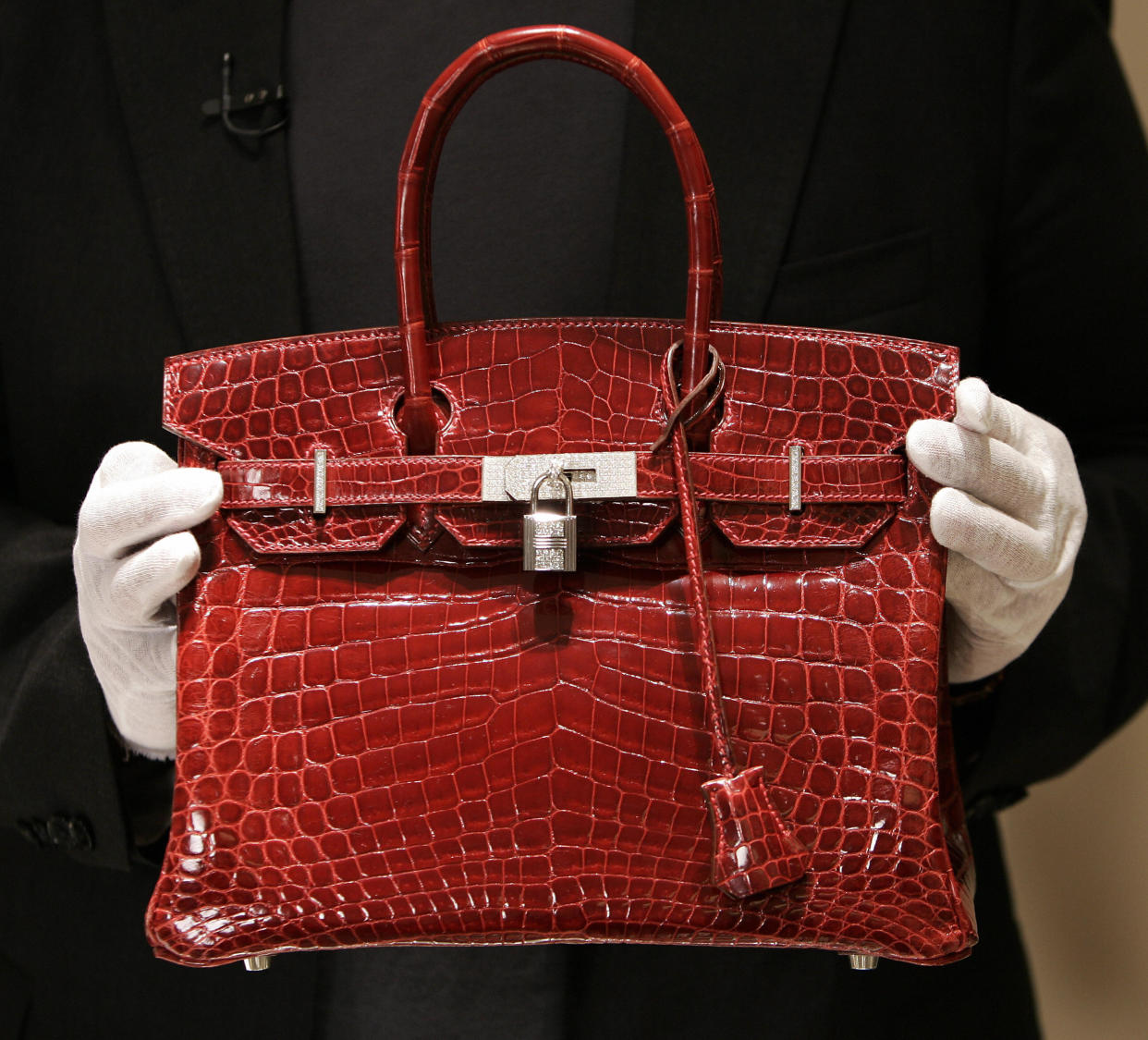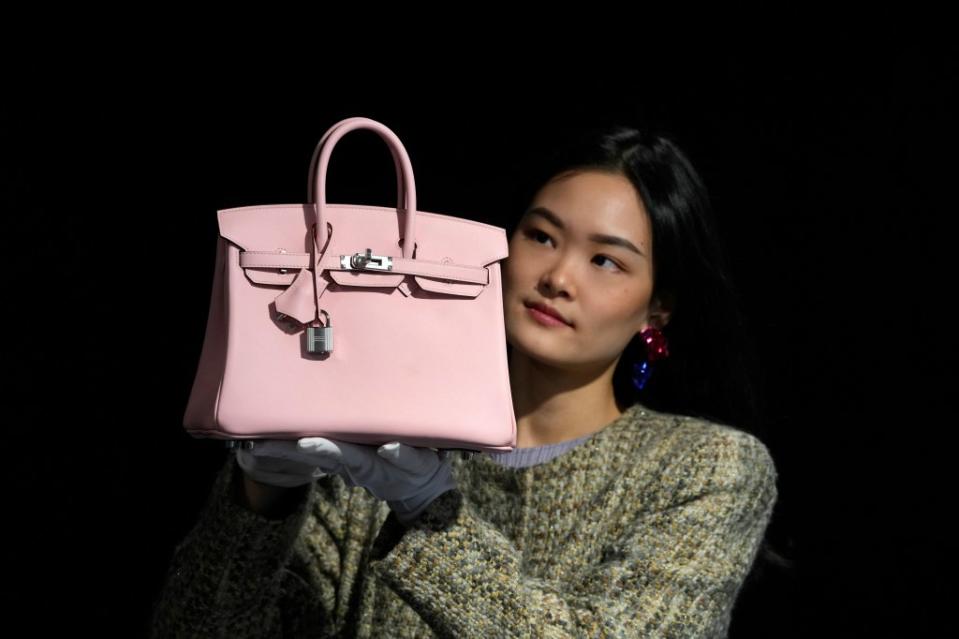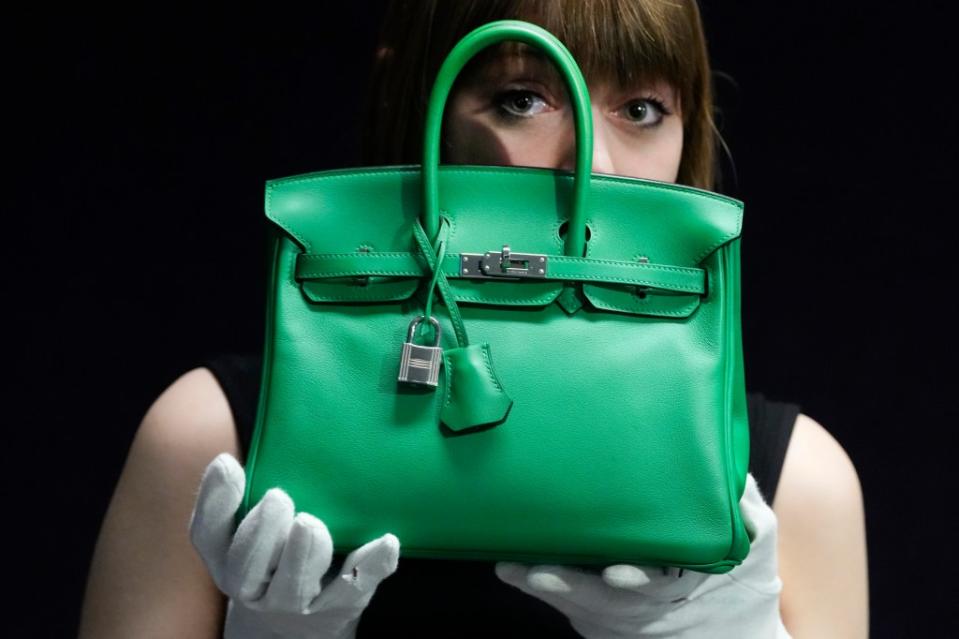Hermès sued for ‘unfair business practices’ that block sales of Birkin bags

Luxury fashion house Hermès has been accused of “unfair business practices” related to how they sell Birkin handbags, according to a class action lawsuit.
The two California plaintiffs alleged that to purchase a Birkin, Hermès required customers to buy other “ancillary products” — such as “shoes, scarves, belts, jewelry and home goods” — before getting the opportunity to buy the coveted, chronically unavailable handbag, which is sold in limited colorways, sizes and supply only at Hermès boutiques.
To be allowed to purchase a Birkin, the suit claims, customers must have accrued “a sufficient purchase history” with the French brand. Once achieved, the lawsuit alleged that “customers who are deemed worthy” are then offered a Birkin, which is allegedly not on public display, in a private room.
“The unique desirability, incredible demand and low supply of Birkin handbags gives Defendants incredible market power,” attorneys wrote in their filing.

The lawsuit, which was filed Tuesday, claims that Hermès’ alleged “tying” practices violate US antitrust laws and accused the fashion house of devising “a scheme” to exploit their market power, which drove up the price of a Birkin and increased profits.
Additionally, the plaintiffs highlight the compensation structure of sales associates, who allegedly do not earn commission on Birkins but do receive it on sales for “ancillary products” and non-Birkin handbags.
According to the Federal Trade Commission, “tie-in” sales could limit the choice of buyers who may want to purchase one item, but are forced to purchase the secondary item that “may be a less desirable one that the buyer might not purchase unless required to do so.”
Plaintiff Tina Cavalleri alleged she had been “coerced” into purchasing “tens of thousands of dollars” of other goods from the brand to buy a Birkin. However, she claimed that, after inquiring about the possibility of purchasing one of the iconic handbags in 2022, she was informed that the bags are only sold to “clients who have been consistent in supporting our business.”
Last year, plaintiff Mark Glinoga claimed he attempted to purchase a Birkin handbag multiple times but was advised by sales associates to buy other Hermès items first to obtain a bag.

Fans of Hermès have speculated that this was the way to score a Birkin, which starts at about $10,000 according to some estimates and can take years to procure, and there were even rumors of a clientele shortlist, although, according to Vogue, it doesn’t exist.
However, the ultra-luxe brand has denied such business practices that the plaintiffs referred to as “anti-competitive, tying conduct.”
“Hermès strictly prohibits any sales of certain products as a condition to the purchase of others,” the fashion house previously told the Business of Fashion.
Hermès CEO Axel Dumas, however, once revealed that boutiques vet potential buyers and sell sold-out handbags to “real” customers only, the outlet reported.
The uptick in clientele scrutiny comes amid efforts to crack down on the luxury resale market, a $50 billion business, as resellers grant eager patrons to bypass the extensive wait to purchase one of the coveted satchels.
The Post has reached out to the plaintiff’s legal representatives for comment.

